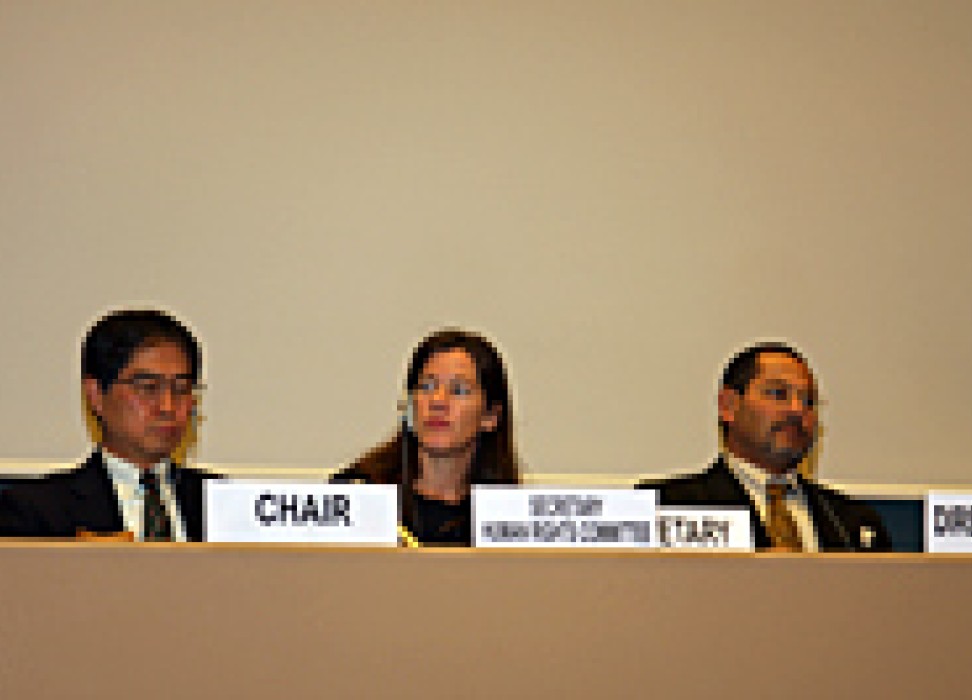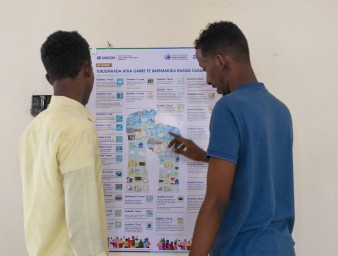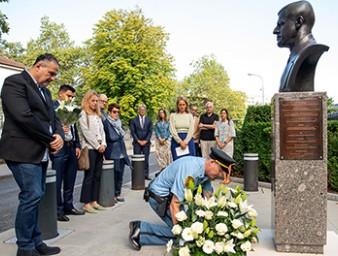Human Rights Committee celebrates 100 sessions
03 November 2010

The 100th session of the Human Rights Committee, the body of independent experts who monitor States compliance with the International Covenant on Civil and Political Rights, was celebrated in Geneva on 29 October.
The celebration was an opportunity for Committee members as well as State party representatives, human rights experts, civil society and other UN bodies to take stock of achievements as well as past and future challenges.
The Covenant was one of the first legally binding international treaties and has been ratified by 166 countries. The Committee was established after the Covenant’s entry into force in 1976 and since then has registered some 2,000 complaints of violations to rights such as the right to freedom of speech, the right to vote, and the right to a fair trial. The Committee has also examined around 700 cases on their merits.
Since its first session in 1977, the Committee has adopted thousands of concluding observations to country reports that have geared States towards greater respect for their human rights obligations. It has also, through its second optional protocol, worked to abolish the death penalty, or suspend it and impose moratoria on executions.
Over the years, the Human Rights Committee has developed a body of legal principles that originate from the interpretation of rights contained in the Covenant. At the beginning of the day’s events to mark the anniversary, the Chairperson of the Committee, Yuji Iwasawa noted that many success stories had arisen from the implementation of remedies recommended to States such as commutations of the death penalty; early releases from prison; receipts of residents permits; and compensation for victims of human rights violations.
The Chairperson added that the Committee was the first treaty body to develop follow-up procedures to effectively monitor and encourage countries’ implementation of the Committee’s decisions, for the benefit of victims of human rights violations.
“The numerous amendments to legislation to which many of the Committee’s Views have contributed, demonstrate the beneficial effects which successful implementation of just one decision can have on the rights-holders of an entire State”, Iwasawa said.
During a panel discussion on the day, Robert Badinter, former French president of the Constitutional Council and one of the advocates for the abolition of the death penalty in France in 1981, acknowledged the prevailing challenges towards universal abolition. He emphasized the Committee’s central role towards reaching that goal, especially under its Second Optional Protocol.
Bertrand G. Ramcharan, former Acting High Commissioner for Human Rights and former Deputy High Commissioner, noted that the International Covenant on Civil and Political Rights is a key part of the International Bill of Human Rights and it is therefore incumbent upon the Committee to lead international protection efforts.
Further reflecting on challenges as well as future priorities, speakers stressed that it was important to recognize the key role of non-governmental organizations in the work of the Committee. Others were concerned by the fact that people living in States that had not signed or ratified the Covenant did not enjoy the rights guaranteed therein; others live in States that have ratified the Covenant, but with many limiting reservations. Speakers also stressed that the Committee’s recommendations to States should be placed in a larger context of the other treaty bodies and the impact would be strengthened if the Committees were to establish cross referencing related to the concluding observations.
3 November 2010




